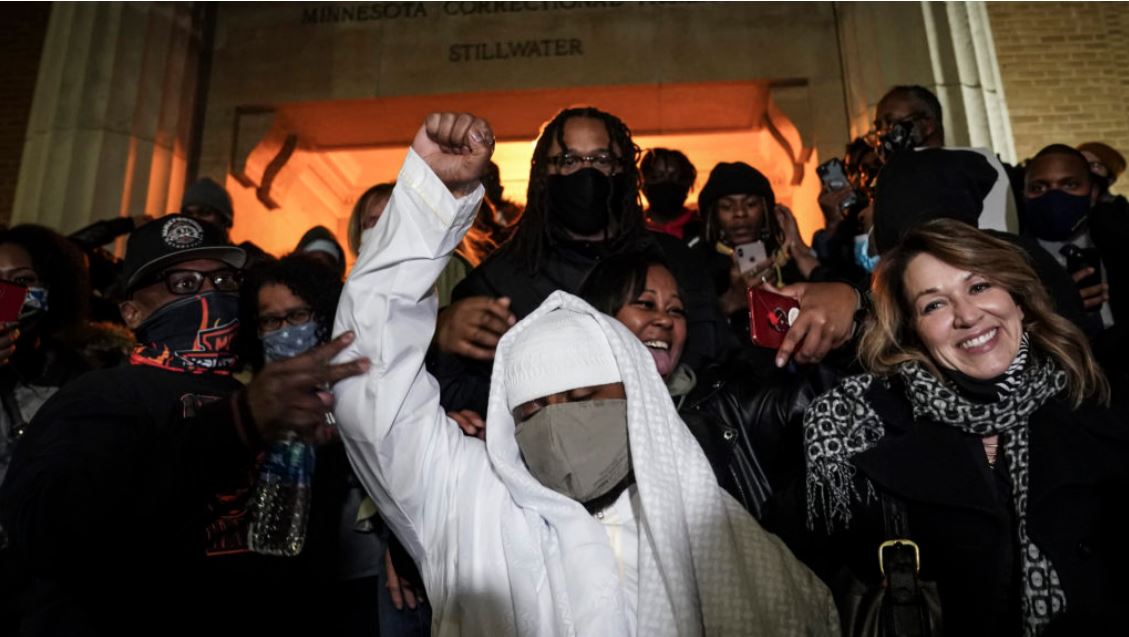[WORK/LIFE] Advocating for the incarcerated: Moriearty’s career path though her passion for social justice
Photo Submitted: Perry Moriearty
Moriearty currently teaches criminal law classes as well as some undergraduate classes on race, justice, and incarceration at the University of Minnesota. She is also a co-director of the clinical program at the law school, where she gets to represent and guide her law students in real-life cases.
Perry Moriearty is an Associate Professor of Law and the Co-Director of Law Clinics at the University of Minnesota. She teaches criminal law, juvenile justice and co-directs the Child Advocacy & Juvenile Justice Clinic. Moriearty dedicated her time at Brown University to English and art, as well as playing Division 1 lacrosse.
“I think I thought I would be a teacher. But one thing I definitely did know is that I wanted to work with underserved kids in whatever way I could. I hadn’t thought about Law school at that point,” Moriearty said.
In college, Moriearty worked as a tutor for kids who didn’t have access to educational resources. After college, she continued to volunteer, working at a summer camp for kids in the foster care system of New York City. It wasn’t until she moved to Costa Rica that she decided to get a law degree in order to better advocate for the disadvantaged kids she was working with.
“I was always really focused on racial justice… I was always involved on campus and outside of campus with various racial justice initiatives. So that is sort of the kids that I worked with after college were predominantly under-resourced kids from communities of color in New York City. Law just became the obvious pathway for me to kind of urge my interest in working with kids and racial justice,” Moriearty said.
Moriearty currently teaches criminal law classes as well as some undergraduate classes on race, justice, and incarceration at the University of Minnesota. She is also a co-director of the clinical program at the law school, where she gets to represent and guide her law students in real-life cases. Her clinic, called the child advocacy and juvenile justice clinic, focuses on representing kids who are being tried for crimes in juvenile court.
“We represent people who are taking custody of children who have come across the border, usually the border through Mexico, by themselves, so they are unaccompanied children,” Moriearty said.

A large part of Moriearty’s role is representing those who are serving life in prison for incidents that took place in adolescence. In December 2020, one of her most meaningful cases, her clinic represented Myon Burrell who served 18 years in the Minnesota prison system for a crime he didn’t commit.
“He went in at 16 and came out at 34, and my students and I were honored to represent him before the Minnesota Board of Pardons. We weren’t the ones that got him out. In fact, you know, Myon got out first of all because he was innocent, but second of all because he and his family and the members of his community never stopped fighting for him to get out” Moriearty said.
On the night of September 5, 2020, Moriearty went to Stillwater prison to walk out with Burrell. “My students and I to this day, feel just incredibly fortunate and grateful that we have had the opportunity to work with him, and that we were able to witness his first moments of freedom,” Moriearty said.
Even though it can be extremely difficult to work with an inequitable incarceration system, Moriearty loves what she gets to do every day because of how rewarding it can be.
“We are advocating for and standing up on behalf of people who are underserved in multiple ways… In addition to representing individual people, all of whom in my opinion are really phenomenal people, that we’re also helping to change the system. I love teaching. And I love working with students,” Moriearty said.
One of the most difficult parts of her job is saying goodbye to some of the people she has worked with as they are locked back into their cells.
“In some cases, they are people that have made big mistakes that they regret and are serving time for those mistakes. But in other cases, they are people that, you know, have been there and paid for their mistakes a long time ago, and are people that I would honestly love to have as my own neighbors. Knowing that they are going back into a metal cell, that’s really a human cage, is really hard,” Moriearty said.
Moriearty started her college career focused on athletics as well as her love of English and arts. Her interest in criminal law and juvenile justice came later, as she developed her interest in advocacy for underserved individuals during and after college. Moriearty wasn’t completely sure what her future looked like going into college, but by pursuing her interests, she ended up dedicating her life to something she looks forward to improving every day.
For those who are starting to think about college and the next steps in their lives, Moriearty encourages exploring things that are meaningful on a personal level.
“Find something that helps you channel what it is you want to change about the world. And you know, do your best I guess to establish a career in that area… You don’t need to know yet, and college is all about exploring different fields and different perspectives, and figuring out what fits for you.”
WORK/LIFE is a feature series that offers an inside look into future careers students might consider.
Hi!! I joined The Rubicon as a Sports Editor during my sophomore year. Junior year I started as the News Editor for our print section, and for my senior...